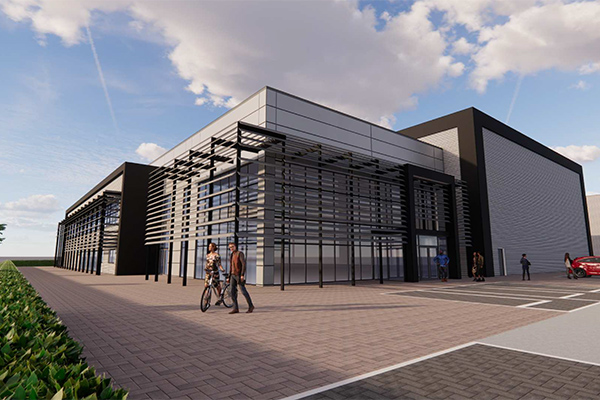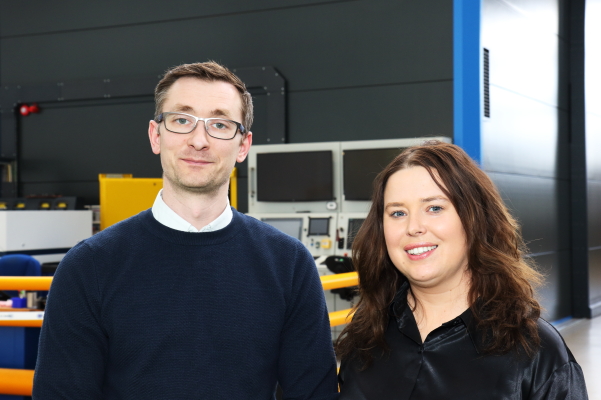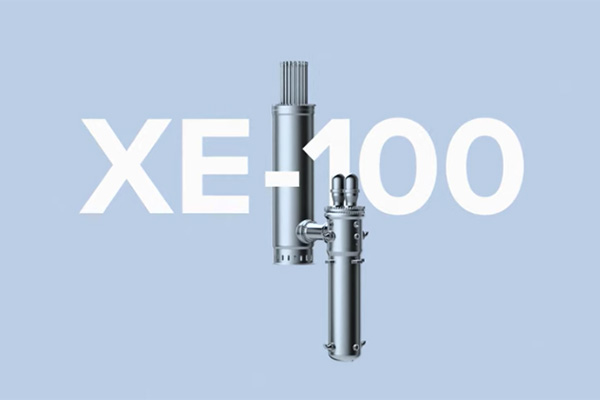Derby City Council has approved plans for a new manufacturing research centre at Infinity Park, which will provide a permanent home for Nuclear AMRC Midlands.
The Cabinet decision gives Derby City Council and its partners – including the Nuclear AMRC, University of Derby, and site developer IPD LLP – the green light to progress plans for the £15 million initiative. The next stage will see a planning application submitted in February next year, with work on site expected to begin in August 2021.
The new Manufacturing Research Centre (MRC) will be operated by the Nuclear AMRC and is expected to create up to 70 high-value jobs.

The move follows a successful pilot project run over the past 18 months, with Nuclear AMRC Midlands operating from the iHub facility on Infinity Park. The move has given the centre space to develop new capabilities in areas including controls and instrumentation and digital engineering, which will be expanded in the new production-scale facility.
“I am delighted to move a step closer to creating a new permanent home for Nuclear AMRC Midlands, and work more closely with local industry and academic partners as the first HVM Catapult facility in the East Midlands,” says Andrew Storer, Chief Executive Officer of the Nuclear AMRC.
“There will be huge opportunities for the region’s manufacturers as the UK moves to net-zero emissions by 2050, and we will work closely with companies of all sizes to help them join the supply chains for small modular reactors, fusion power and hydrogen generation.
“The new facility will also allow us to work with companies in other sectors such as aerospace and rail to help them overcome the manufacturing challenges in their core markets, and share world-leading innovation and best practice to support long-term sustainable growth.”
The new MRC will also become a base for the University of Derby’s Institute for Innovation in Sustainable Engineering, which has developed an international reputation for innovation in design, manufacturing, product lifecycle management and application of new and smart materials.
“We very much welcome the support the city council has given to this proposal,” says Professor Warren Manning, Provost for Innovation and Research at the University of Derby. “Derby has been synonymous with innovation in engineering and manufacturing throughout its recent history, and this proposal will keep the city at the cutting edge, driving some of the most exciting and globally significant developments as we move into the ‘carbon net zero’ era.”
Once built and occupied, the facility is expected to add £52 million to the local economy across five years, supporting SMEs in the area to grow by creating opportunities for research and development.
But the real benefits of this new centre lie in the growth and increased resilience of manufacturers in the Midland supply chain. It is anticipated that the facility will engage with 100 businesses leading to 50 medium-term interventions, and then around 35 significant collaborations over the next five years.
“It’s great news for Derby’s SME businesses, and we anticipate that this will propel further Infinity Park Derby as the manufacturing destination of choice,” says Councillor Matthew Holmes, Derby City Council’s Deputy Leader and Cabinet Member for Regeneration. “Having a world-class research facility on our doorstep is a huge boost for the city and supports our drive to emerge stronger in our economic recovery.”
The new facility has been allocated just over £9 million of funding by the D2N2 Local Enterprise Partnership, including £6.85 million from the Getting Building Fund which is investing in shovel-ready infrastructure projects to create jobs and support economic recovery across the country.
The final allocation of funds is subject to the approval of a full business case by the D2N2 LEP.
“This is an important development as we look to the future, building on Derby and the wider D2N2 LEP area’s reputation for manufacturing excellence,” says Sajeeda Rose, CEO of D2N2. “The Nuclear AMRC will give small and medium-sized businesses access to leading technological expertise, leading to improved productivity and innovation across the region.”




